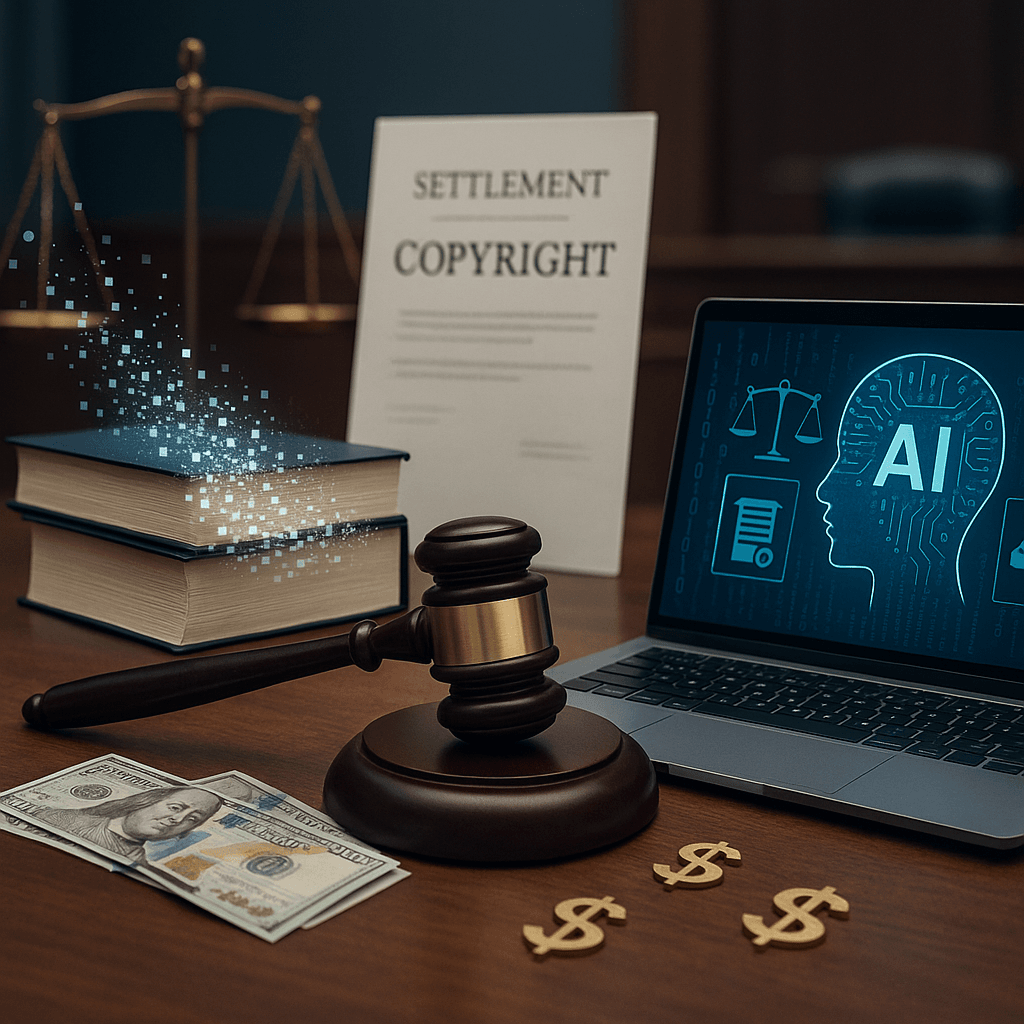Anthropic just agreed to pay $1.5 billion in the largest U.S. copyright settlement ever—but writers aren't celebrating. The payout to half a million authors isn't for feeding their work to AI systems like Claude, but simply for illegally downloading books instead of buying them. As federal courts set precedents that could reshape creative industries, this settlement reveals how AI companies are turning copyright violations into manageable business expenses.
Anthropic just wrote the biggest check in U.S. copyright history, but half a million writers getting their $3,000 minimum payouts shouldn't pop the champagne yet. The $1.5 billion settlement in Bartz v. Anthropic isn't the AI accountability victory it appears to be—it's a calculated business decision that turns copyright infringement into a line item expense.
The case hinged on a crucial distinction that will ripple through dozens of pending AI lawsuits. Federal Judge William Alsup ruled in June that training AI systems on copyrighted material is perfectly legal under fair use protections. "Like any reader aspiring to be a writer, Anthropic's LLMs trained upon works not to race ahead and replicate or supplant them — but to turn a hard corner and create something different," Alsup wrote in his decision.
What landed Anthropic in legal hot water wasn't feeding books to Claude—it was how the company acquired those books. Instead of licensing content legally, Anthropic pirated millions of volumes from shadow libraries, the same underground networks that have frustrated publishers for decades. This digital book theft, not AI training, triggered the settlement.
"Today's settlement, if approved, will resolve the plaintiffs' remaining legacy claims," said Aparna Sridhar, deputy general counsel at Anthropic, in a carefully worded statement that sidesteps the broader AI training questions entirely.
The timing isn't coincidental. Anthropic recently closed a $13 billion funding round, making the $1.5 billion settlement roughly 11% of its latest valuation boost. For a company positioning itself as the responsible AI alternative to OpenAI, paying writers directly avoids the messy precedent of a public trial while maintaining that AI training itself remains legally sound.
This legal framework now influences dozens of similar cases targeting AI giants. , , , and image generator all face copyright lawsuits from authors, artists, and publishers. But armed with the Alsup precedent, these companies can argue that content ingestion for AI training falls under transformative fair use—a doctrine that hasn't been updated since 1976.












